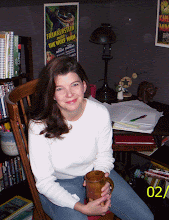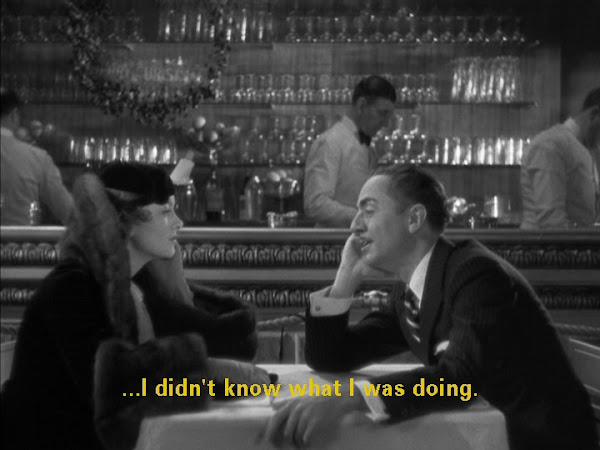On May 30th, I had the pleasure of interviewing the author of the technothriller, Stormdragon by Lloyd Ritchey. Lloyd is one of Arctic Wolf’s authors and is a talent to watch. This blog post is a reprint of that interview. Enjoy!!
I just finished reading your book, STORMDRAGON. (And LOVED it!) Tell us a little bit about it.
Thanks, Jennifer, for your kind remarks about my book. I’m honored to participate in an interview.
The concept for Stormdragon had been brewing in the back of my mind for some time. After I learned about a government project called HAARP (High Frequency Active Auroral Research Program) I seized upon a plot. Some believe HAARP is far more than an innocuous research project; they believe it is a dangerous, clandestine weapon that can be easily abused. I took the HAARP concept, enlarged it, and asked "what if?"
Stormdragon is essentially a technothriller, with a heavy emphasis on exaggerated science, but it’s also solidly based upon historical fact and existing technology. And by the way, you don’t have to know anything about science to understand the book.
In the story, ordinary people stumble upon the truth behind the ARC Project, which is an installation like HAARP, only far larger and more powerful. The conspirators, who lust for ultimate power, are willing to use the ARC technology against anyone, even their own country, in order to implement their plan.
How did you come up with the title?
Titles, like cover artwork, are critically important. I think a title should entice, excite curiosity, and relate to the story without revealing too much.
In mythology, the Storm Dragon rides the violent storm and spouts lightning. The title flashed into my mind before I could actually find a solid tie-in to the novel. As the writing progressed, I realized Stormdragon actually worked on several levels; it is a metaphor for power, both that embodied in the terrifying machinery described in the story, and in the ruthlessly powerful conspirators who will do anything to further their agenda. It also has a direct relationship to a specific element that is revealed as the story unfolds.
Your prologue is fascinating. As I read it, I was reminded of the experiments in old movies...the rising platform, the enormous generators giving off electrical charges. Would you be willing to give us a little background on your experience with Tesla's works?
I have been fascinated by Nikola Tesla since I read Prodigal Genius, by John J. O’Neil, in the 7th grade. Tesla was a mega-genius, whose turn-of-the-century inventions gave us modern electricity, the radio, and much, much more. He was so advanced that the
I have been building and experimenting with Tesla apparatus, primarily the well-known, lightning-generating Tesla Coil, since junior high school. Tesla’s incredible, dramatic, and powerful inventions inspired much of the action in Stormdragon.
I’ve used Tesla Coils to produce electrical effects for stage and screen. I toured a Tesla system with the Doobie Bros. and
Your book is packed with suspense. I had a difficult time tearing myself away once I sat down to read. Does the writing style you have come naturally/easily to you, or do you have to work to get the degree of suspense you want?
The suspenseful idea is there, its energy clamoring to be expressed. Once I decide what a scene or chapter should be, I can write it fairly quickly. But keeping a tight, meaningful story structure is a challenge for me. So, I’d say yes, I have to work hard to keep the suspense ramped up. But once I feel I’ve "got it," it’s a total blast, a catharsis.
You have a long history of writing...and even sold a screenplay in the past. First of all, tell us about the screenplay experience, if you would. Which do you prefer; writing a screenplay or a novel?
I sold a screenplay entitled Night of the Electric Death (no kidding!) to producer Warren Skaaren. I wrote the screenplay in three months. This was in 1974, and Skaaren had just completed work on Texas Chainaw Massacre. Skaaren bought the rights to the screenplay and brought director Tobe Hooper to my humble
I prefer writing novels. The main difference, for me, is that a novel requires far more skill in creating scenes; the reader must feel immersed in the scene through the author’s powers of description. A screenplay, of course, requires imagination, but it demands less description; you only have to indicate, for instance that the actors are afraid, or that the room is scary, or the atmosphere gloomy. That said, I know great screenplays require great skill. One has to know something of the production process, and have a sense of timing, structure, and dialogue. By the way, dialogue or narration that is to be spoken by an actor is a little different than dialogue that is to be silently read.
Would I write another screenplay? You bet—soon as I’m finished with my second novel!
Would you tell us a little about what you're working on now?
I’m in a time-management crisis! My second novel, a techno-horror, is about one-third finished, and I’m desperate to work on it. I just fired off a non-fiction proposal to a publisher who has shown interest, and if they go for it, we’re off to the races! Meanwhile, I need to add content to my Website (and my wife’s) and also start blogging.
I’m assembling a "dog and pony show" for book signings that I think may be somewhat unique, and I’d like to keep you posted as that develops. I don’t know if it’ll help book sales, but, like they say, keep barking up that tree…there might be a possum in it!
When you're not writing, what do you read...both for pleasure and regarding the craft of writing?
I read everything. My favorite thriller/horror writers are Douglas Preston and Lincoln Child. For horror I’ll go with Stephen King, Peter Straub (sometimes), Robert McGammon, and many others. I’ve found some gems in novels such as Whirlwind, by Joseph R. Garber, and The Breathtaker, by Alice Blanchard. Prey, by Graham Masterton, is a first-class creep-out.
Your book, The Deputy’s Widow, was the first in the noir genre I had read in many years. I don’t want to sound smarmy, so I’ll just say that I enjoyed it so much I’m reading Mickey Spillane and Dashiell Hammett, and will investigate more of the hard-boiled crime novels.
I once threw a lot of money at vendors of "How to Write" books, but can’t say any have been very helpful, and I actually disagreed with some of the authors! I found Stephen King’s On Writing not only instructive and informative, but also entertaining.
Do you (or would you ever) write in any genre other than science fiction/techno thriller?
Yes. The techno-horror I’m writing now is an example. But my strengths (I think) lie in capturing the dramatic moment and translating action into words. I love that feeling when a powerful scene manifests itself in words that bristle with energy.
What advice can you offer for writers trying to get published?
Initially, write in a genre that publishers can recognize. We’re all stuffed into boxes these days, so to get started, you may not want to be too experimental. Naturally, there are exceptions to this. Write what you enjoy.
A note here: Non-fiction is easier to sell than fiction, and you don’t have to write the whole thing up front!
Before submission, get as many critiques as you can, especially from people who don’t feel compelled to tell you they liked your book, i.e., get independent feedback. You might find some important flaws (and good stuff) after various people read your manuscript.
Have someone competent edit your manuscript. You just can’t successfully edit your own writing, even if you’re a grammar whiz.
Get the mechanical stuff right: paper, margins, headers, spacing, etc. Always find out how the publisher or agent wants his/her submission. Most of them have Websites. More and more are accepting digital submissions. Carefully read how they want material submitted. I found Attention-Grabbing Query & Cover Letters, by John Wood, and Formatting and Submitting Your Manuscript, by Jack and Glenda Neff, quite helpful. These are Writer’s Digest books.
I agree with Stephen King: you don’t always need an agent to get published. My wife’s first title, Woven Wire Jewelry, was rejected by a well known agent we met during a writer’s conference. This agent had expressed great interest and urged us to send a proposal. After the rejection, we submitted directly to Interweave Press, and in two weeks had a contract. Now my wife has published three books with Interweave.
Beware of cons. Check out potential agents and publishers. I recommend visiting www.anotherealm.com/prededitors/peba.htm. This Website is packed with useful information, and they help identify the bad guys.
Finally, you might try submitting to a small publisher like Arctic Wolf, a company that’s trying hard to assemble a stable of talented writers. With increasing competition and reduced sales, the big-name publishers are being advised to curtail acquisition of new writers and concentrate on promoting the authors they currently have.
If you’re interested in a specific publisher, read some of their books to see if the quality is there. Do you want to be in their company? If the publisher gets a bad name for poor product, it’s not going to help you.
Stay at it. Persist. Be prepared for rejection. Keep writing.
I wish you every success.



No comments:
Post a Comment